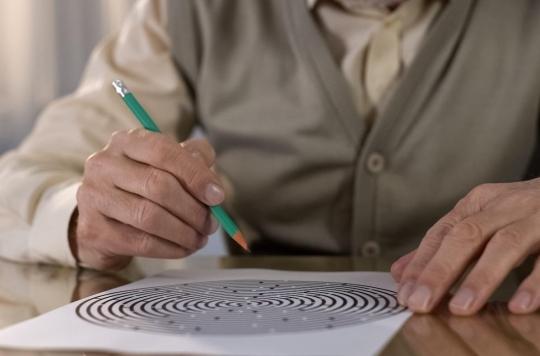The most sedentary seniors are more likely to engage in educational and stimulating activities that boost their cognitive abilities. Be careful, however, not to forget to practice a minimum of physical activity.

- Seniors who spent more time inactive performed better in vocabulary and reasoning exercises.
- Researchers believe that more sedentary people use their time to engage in educational and stimulating activities, such as reading, playing games or puzzles, or attending plays.
Not everything is bad in a sedentary lifestyle. Studies follow one another and reveal in turn the harmful effects of inactivity which leads, pell-mell, to increase the risk of death, diabetes or even cardiovascular disease. This silent disease could have at least one beneficial effect, that of boosting cognitive abilities. This is the conclusion of a study, published in the journal Psychology and Aging, led by American researchers from the University of Colorado State. These benefits are only valid if a minimum level of physical activity remains respected.
Measuring the association of physical and cognitive activities
The researchers examined the association between physical activity measured by sensors and cognitive performance in a sample of 228 people aged 60 to 80. While adults who stick to moderate physical activity have better speed, memory and reasoning skills, those who spent more time inactive performed better in vocabulary and reasoning exercises. “We know that as we age, even if we don’t have cognitive impairment, people aged 60 and over already show decreases in speed, executive functioning and memory.recalled Aga Burzynska, lead author of the study. These decreases are completely normal, but this study provided insight into how our behaviors and habits may correlate with cognitive outcomes in later life..”
For the study, researchers used sensors to measure physical activity, fitted to participants’ hips for seven days. This device made it possible to capture the daily time spent sitting or in light physical activity. To measure brain activity, they used an assessment based on 16 cognitive tasks. They also measured and controlled socio-economic and health factors such as employment, income level and blood pressure.
Better use of time
Participants who engaged in moderate physical activity performed better on certain tasks, suggesting that exercise helps combat some of the effects of brain aging. On the other hand, light physical activities, which concern household chores, are not associated with better cognitive results. Researchers believe that more sedentary people use their time to engage in educational and stimulating activities, such as reading, playing games or puzzles, or attending plays.
.
















